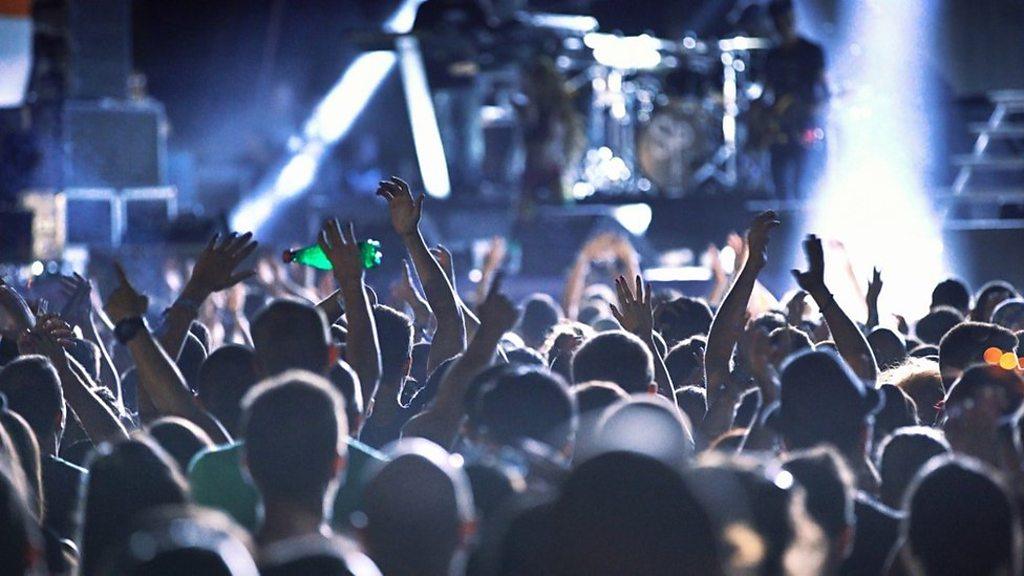Disabled musicians are being 'failed by venues'
- Published
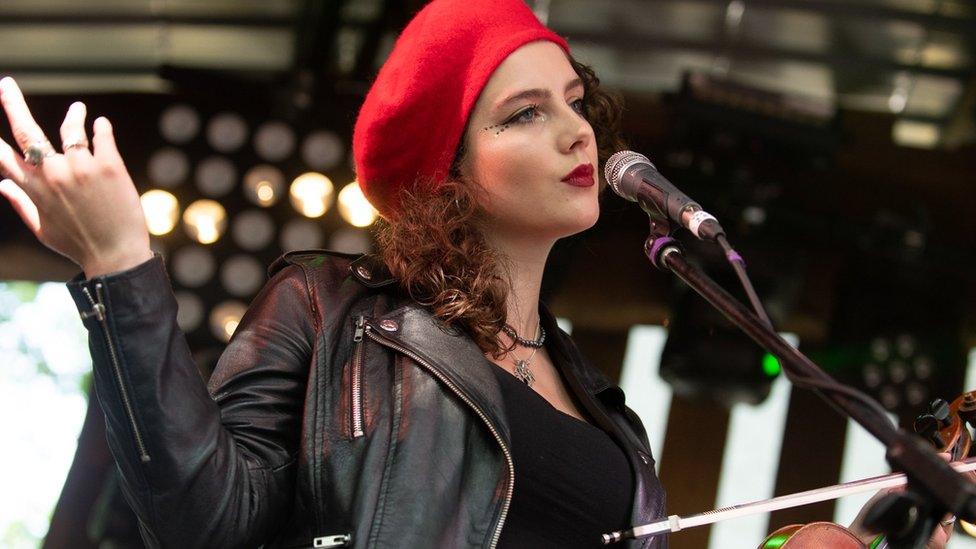
Ruth Patterson said her band had been turned away by venues because of her disability
Last year, Ruth Patterson's band Holy Moly and the Crackers tried to book a tour of the UK.
But one venue wrote back, refusing to host them because Patterson, who has arthritis and Ehlers-Danlos syndrome, uses a wheelchair.
"They said they wouldn't book us because I was a fire hazard," she says. "That's absolutely horrendous."
The singer is not alone. A new survey suggests disabled musicians face significant barriers in UK venues.
Of the nearly 100 deaf and disabled performers surveyed by Attitude Is Everything, two-thirds said they had to "compromise their health or wellbeing" in order to play live.
Twenty per cent said they had been forced to cancel gigs altogether due to a lack of access.
One musician, writing anonymously, said: "I would never perform if I did not force myself up and down more flights of stairs in one night than I would comfortably navigate in one night."
Another said: "One of my bandmates has epilepsy and gets often ignored when asking organisers not to use strobe or flashing light."
DJ Laura Jones, who is visually impaired, said her requests for "bright white light sources" were often ignored, because "it's difficult for people to know what my problem is unless they see me walking into a wall".
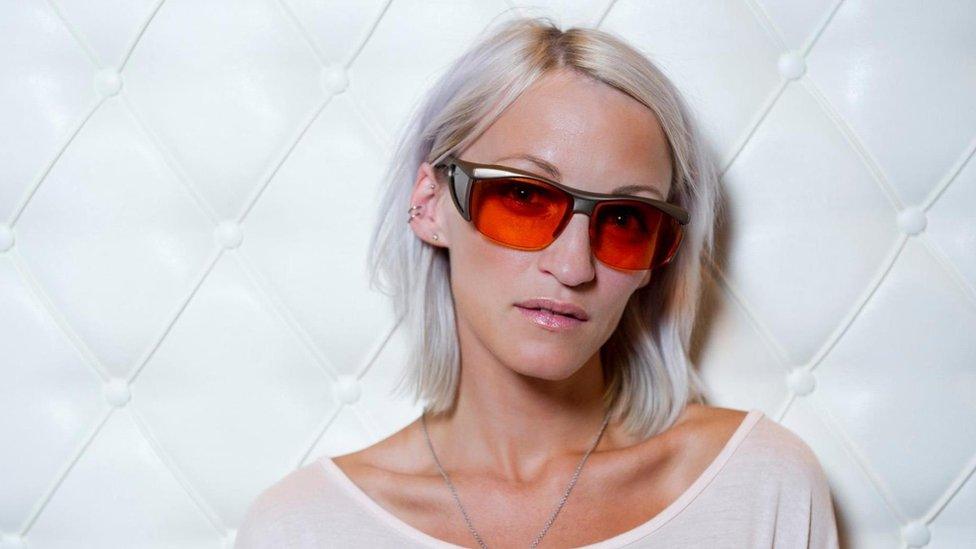
Laura Jones says promoters fail to consider her visual impairment
She recalled an incident at the Burning Man Festival in Nevada, where she was ordered to remove her sunglasses even though, "my condition is made worse by UV light".
"People know wheelchairs and they know canes, but they struggle to know anything in between," she said.
The snapshot of 96 musicians, songwriters, DJs, producers and performers also revealed that:
70% of respondents said they had kept their disability hidden in case it damaged their reputation with venues, promoters or festivals.
38% could not access their nearest rehearsal space.
96% felt the industry could do more to become inclusive for disabled artists.
Blaine Harrison of Mystery Jets, who has spina bifida, said it was "heart-breaking that so many artists are facing barriers and obstacles".
Patterson called the findings "saddening but completely unsurprising", adding that UK venues were particularly ignorant of disabled musicians' needs.
"Europe is generally better in terms of access. And even if they don't have access, they have a lot more guilt about it. And that means something to me.
"I feel like in the UK, some venues feel like they're doing you a favour just by putting you on.
"The music industry has got to step up and make serious changes."
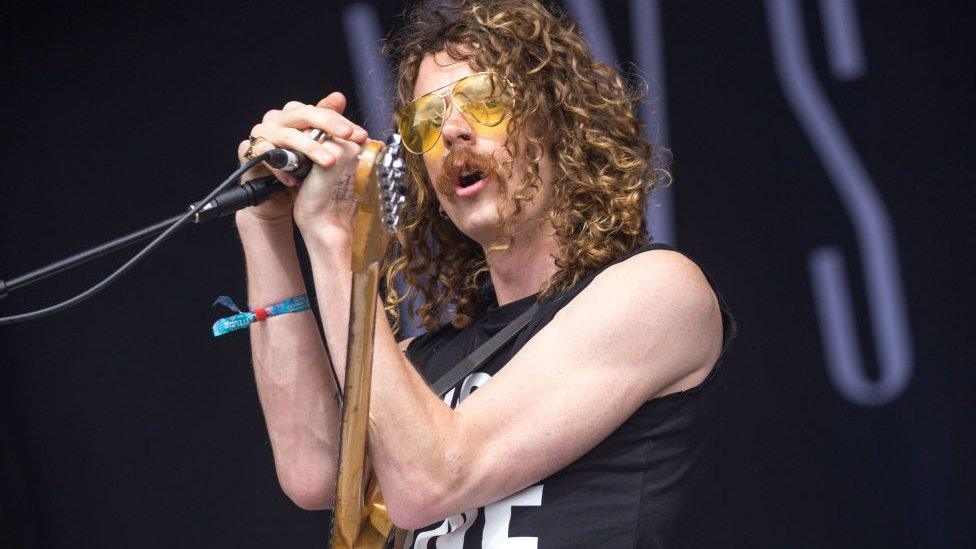
Mystery Jets singer Blaine Harrison says the difference in venues' treatement of disabled artists is vast
Harrison said newer venues were at an advantage, as building regulations meant accessibility was considered at the design stage, but highlighted the 116-year-old London's Shepherd's Bush Empire as an example of a concert hall that had made great strides towards inclusivity.
"They've built in lifts and ramps and, perhaps most importantly, their staff are really well trained," he said.
Suzanne Bull, CEO of Attitude Is Everything, said the survey would make "uncomfortable reading" for the UK music industry.
"Our respondents clearly raise some fundamental issues with rehearsing, recording and performing that need to be addressed," she added. "Disability cannot be treated as a taboo."
In response to such issues, Attitude Is Everything launched Next Stage - an initiative aimed at promoting greater inclusivity for artists in the music industry - last December.
The Arts Council-funded scheme aims to gain a greater understanding of the challenges facing disabled artists - and take steps to remove those barriers.

Follow us on Facebook, external, on Twitter @BBCNewsEnts, external, or on Instagram at bbcnewsents, external. If you have a story suggestion email entertainment.news@bbc.co.uk, external.
- Published9 April 2018
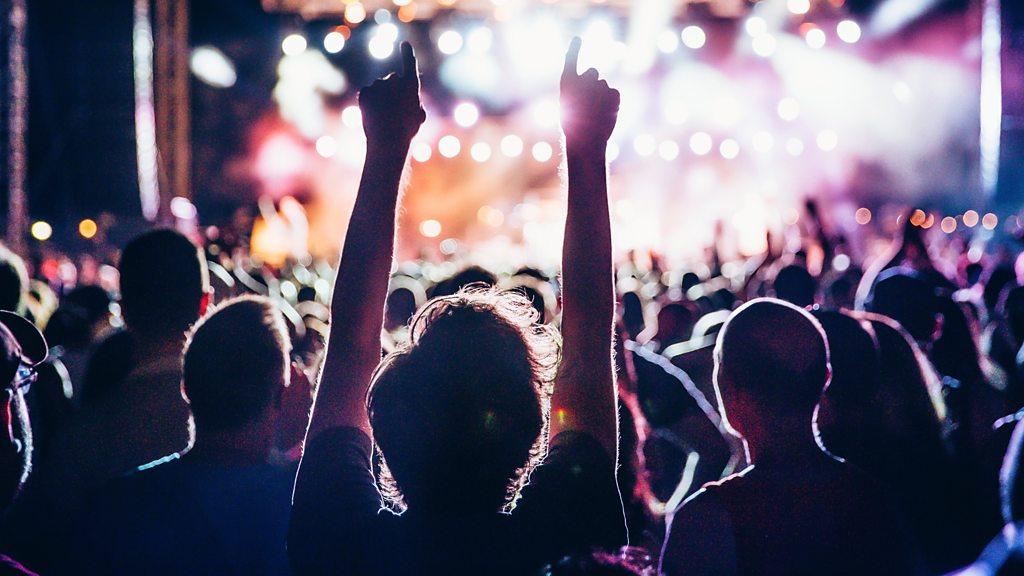
- Published12 March 2019
